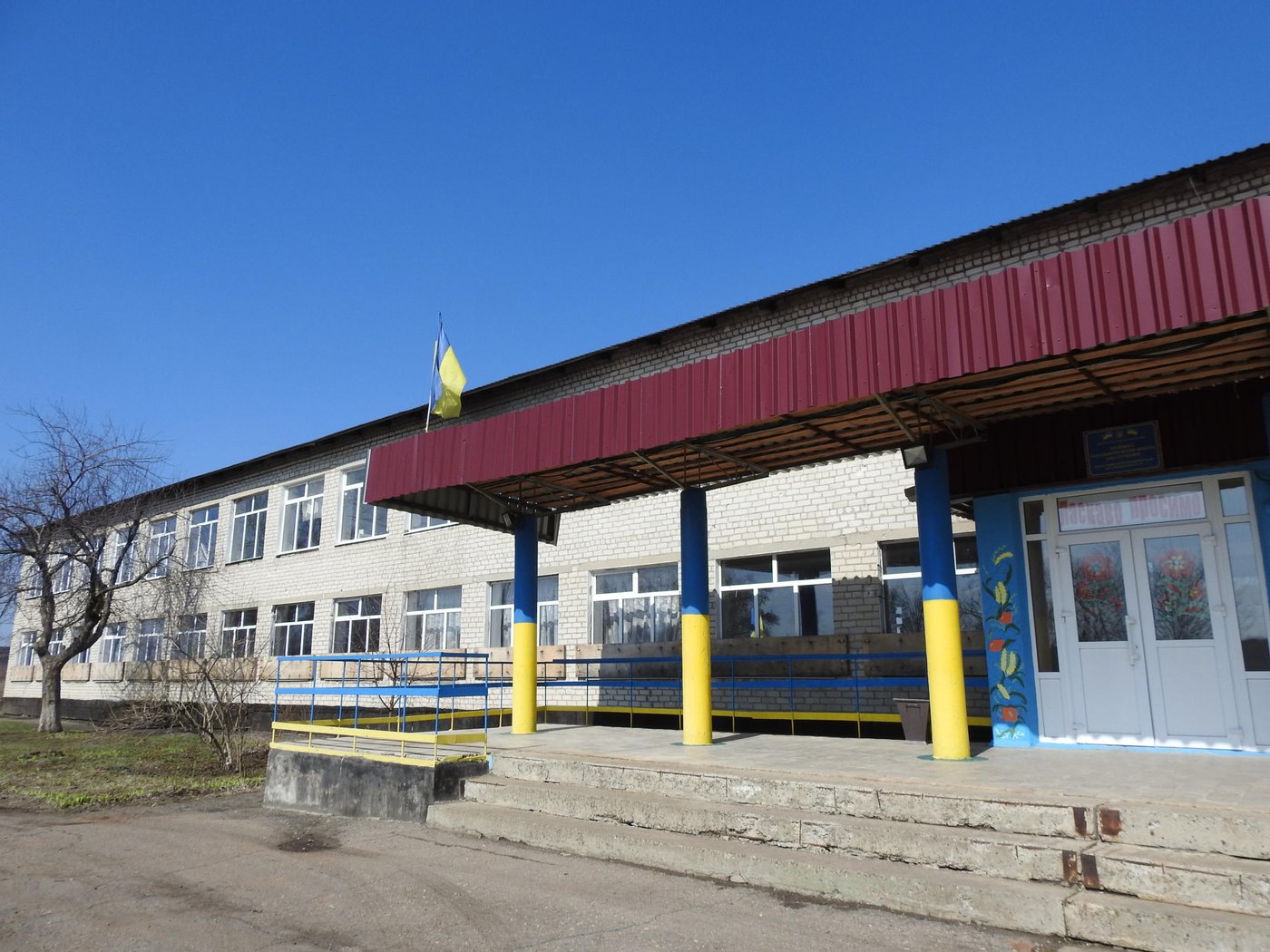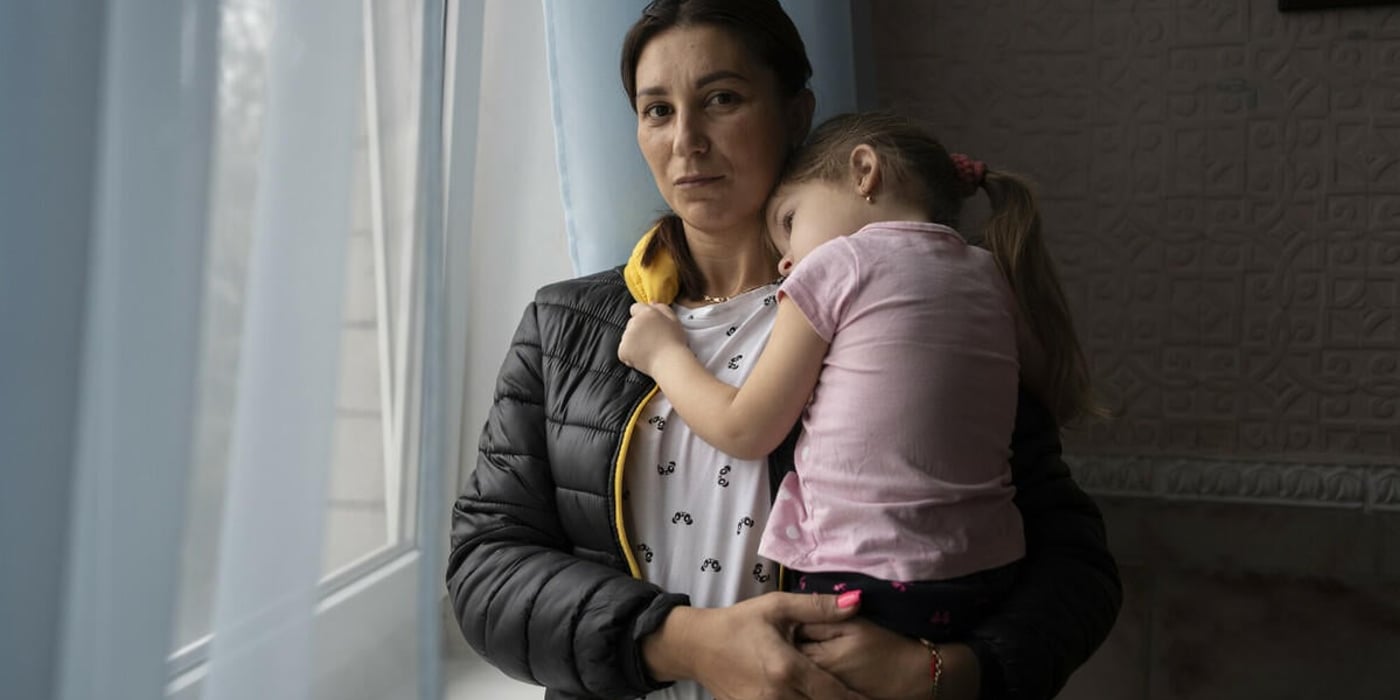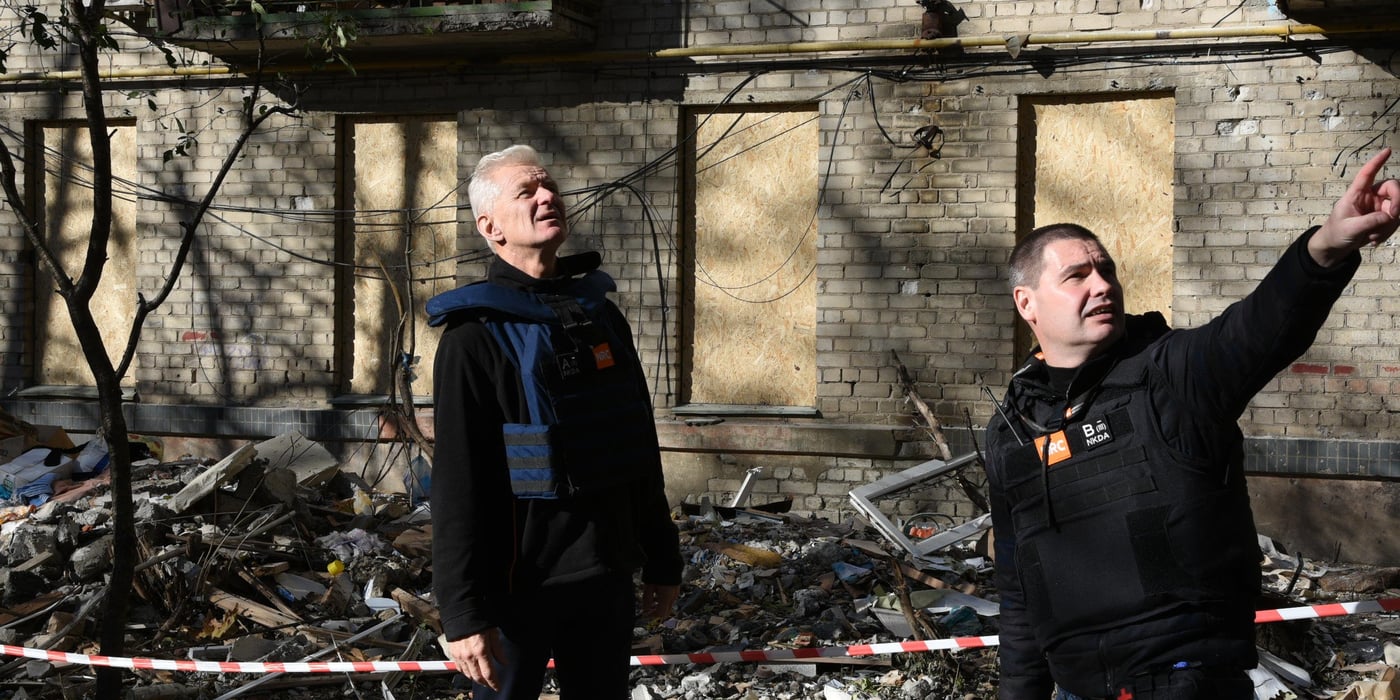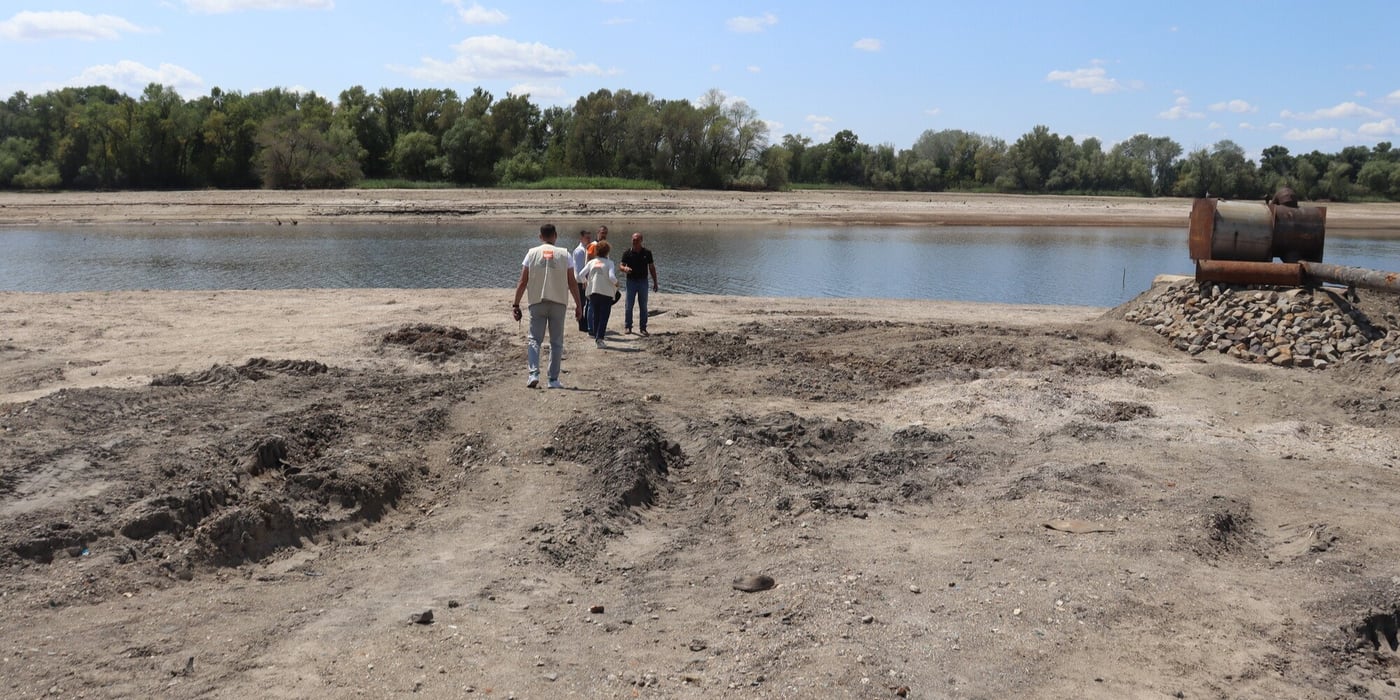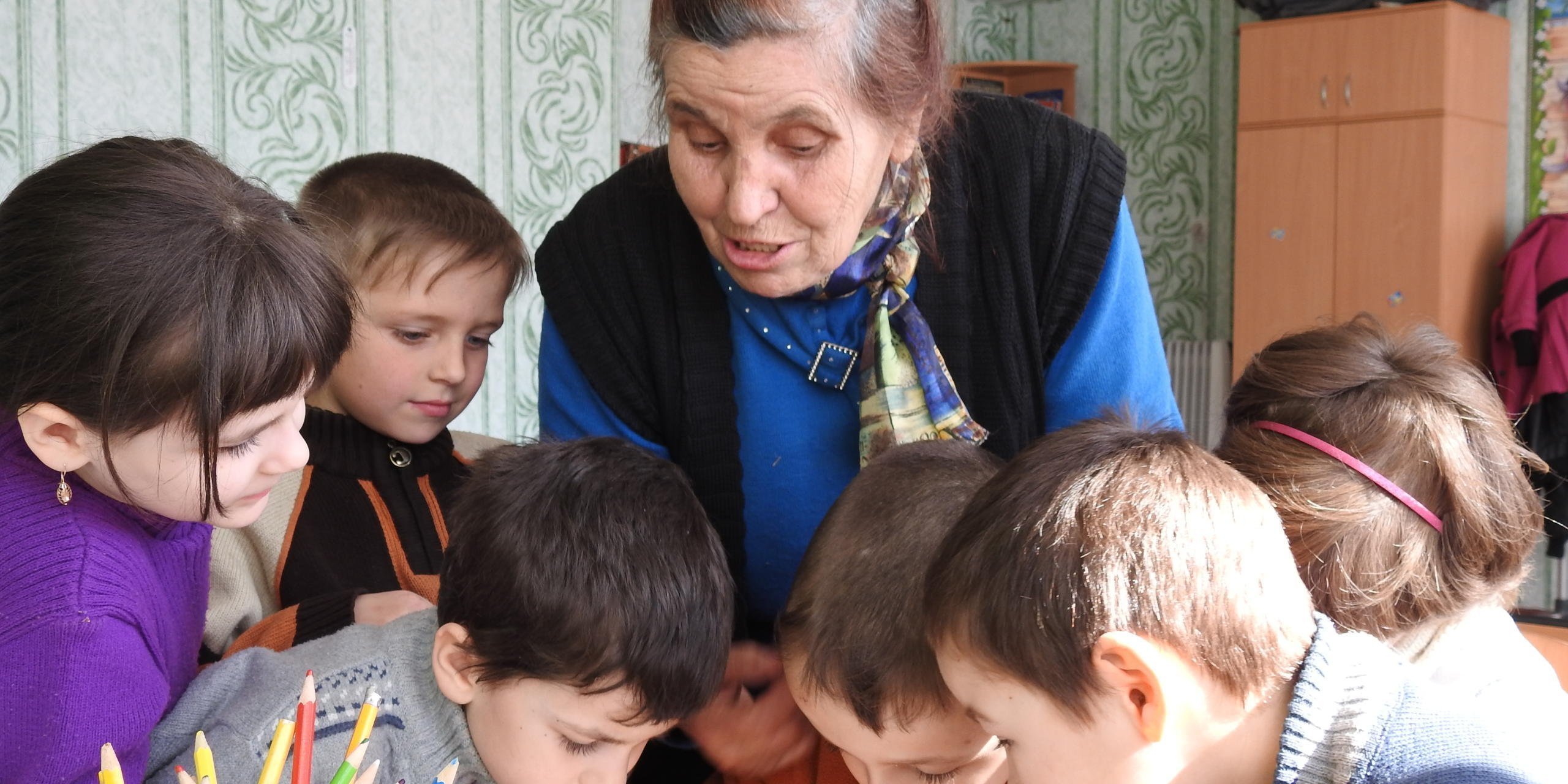
The evidence of conflict is on full display for all to see: destroyed church, ruined bridge, shrapnel holes in the road, empty houses with remnants of broken windows and damaged roofs. All this serves as a bitter reminder of that day in July 2016 when 8 villagers were killed and 65 others were injured during an armed attack. For more than a year, the villagers could only get to the nearby town to receive their social benefits by crossing a pontoon bridge.
“If you only knew, how much we want peace!”— exclaims Liudmyla Ivanivna, a teacher at the local secondary school. She has been teaching children over 40 years.
The school has always been the “heart” of the village. When the war came, it was bombed and damaged twice. The village suffered a first attack in September 2014, when children had just started school. “After a second attack in winter 2015, the school was damaged so much that it was impossible to conduct classes for many months until we started receiving help from volunteers and humanitarian organisations,” – reveals Marina Ihorivna, the schoolˈs director.
It was essential to repair the school, so that children from Troitske and another neighboring front-line village could study again.
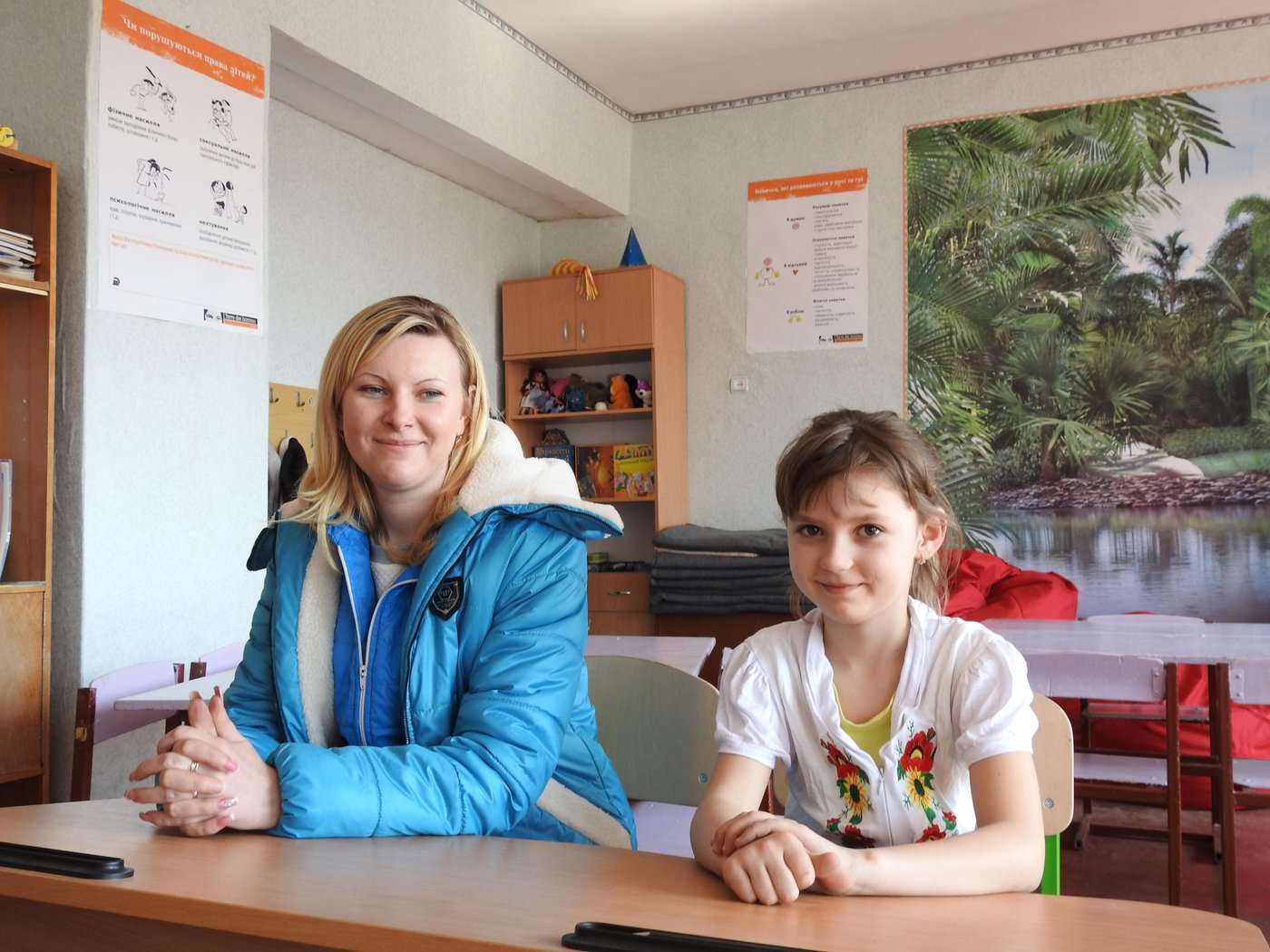
“It is so important that our children can go to this school. It is 20 km to the next closest school, which also regularly comes under weaponsˈ fire. But who will be responsible for our childrenˈs safety if they go there every day? It is so unsafe on the road,” – says Yulia, the mother of 8-year old Karina.
“We had to flee from the village because of the critical situation. But my son Danil insisted to return. So, we decided to check how the things were there. When we saw the school under repair, we decided to return,” -- says Yelena, the mother of 10th grader Danil. He wants to become a lawyer.
“When construction materials are delivered to the affected households, people immediately start to work. They build and repair despite the conflict, as they hope so much for peace on their land,” – says Nickolay Bondar, an NRC engineer.
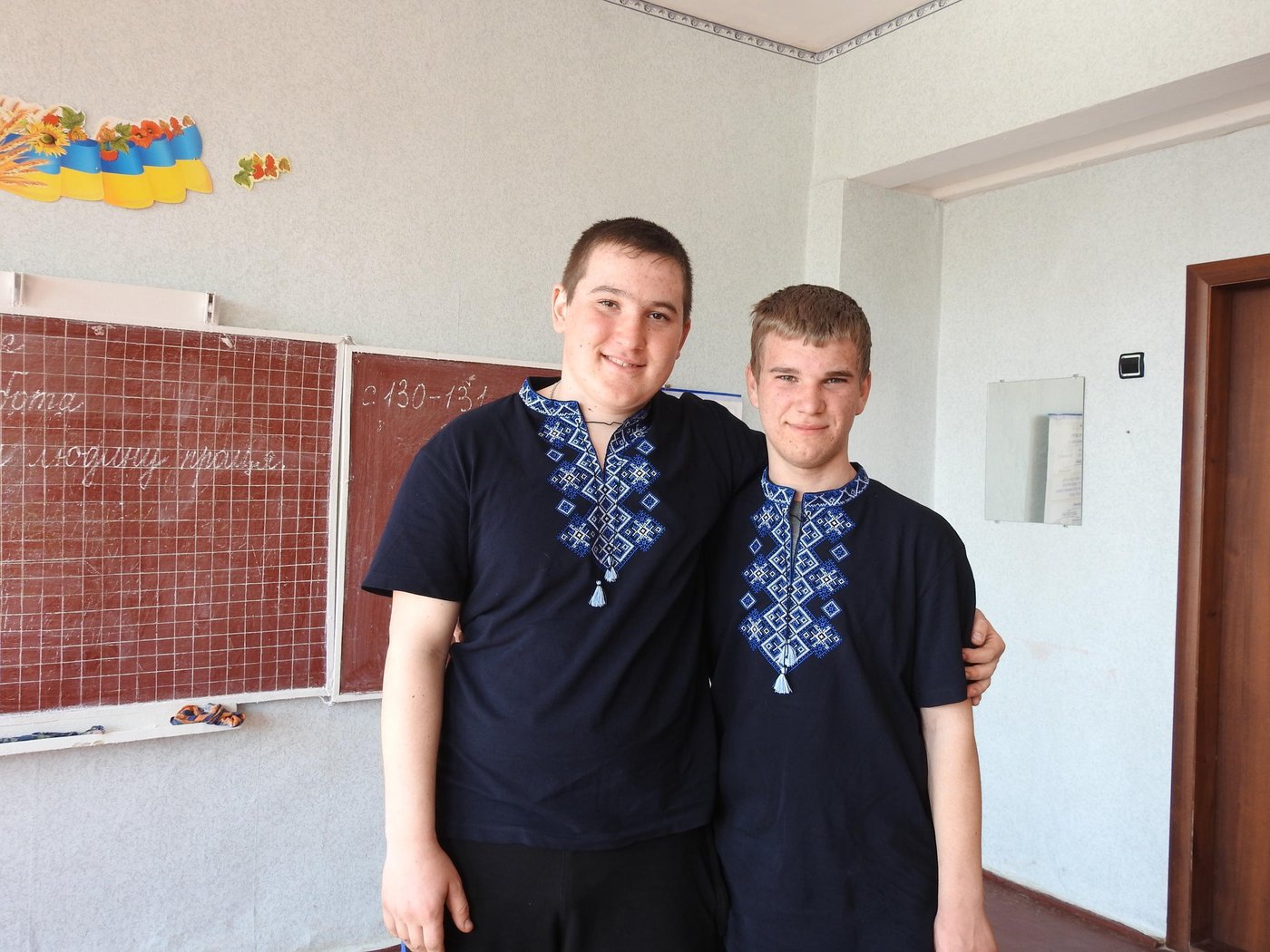
Due to the escalation in hostilities during the winter of 2015-2016, the people of Troitske found themselves in a dire situation, cut off from electricity and water for many months. NRC provided all the families with coal, wood and warm clothes. For emergency repair and insulation of houses, 150 families received glass, roofing slates, and plastic sheeting. The most vulnerable families received hygiene items, as well as baby food.
“We provided essential materials for the repair of the school and a local NGO, “Global Synergy,” supplied environmentally-friendly materials to insulate the schools walls and installed new lighting in the classrooms,” - states Gianluca Galli, the NRC Area Manager in eastern Ukraine. In total, four front-line schools were repaired thanks to the joint efforts of the two humanitarian organisations, both of which are supported by the Norwegian Ministry of Foreign Affairs.
The village of Troitske and the surrounding areas provide a snapshot of how hostilities along the front-line impact the civilian population. It also demonstrates how humanitarian actors can join efforts to make small improvements in the lives of people suffering under the weight of armed conflict.
